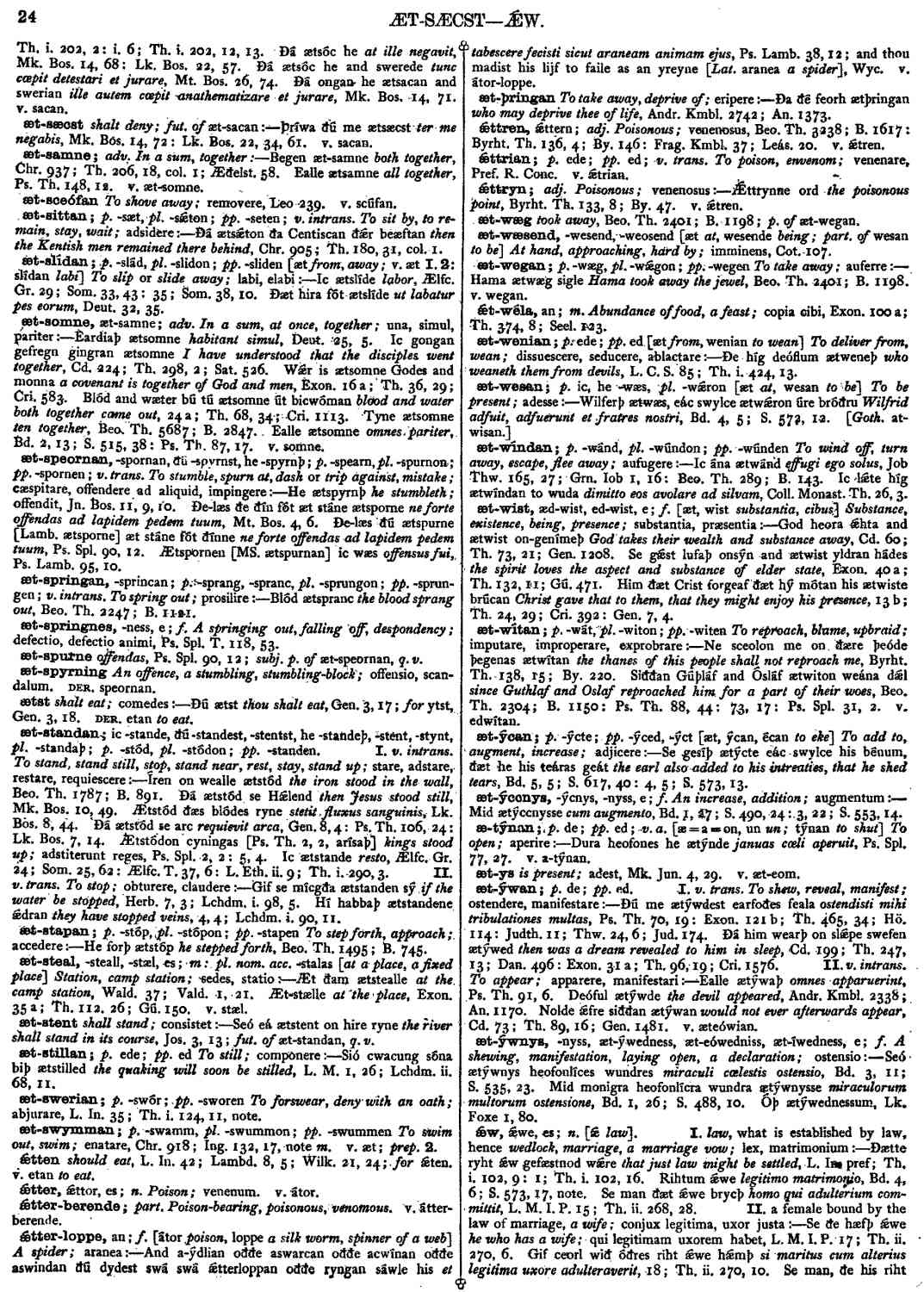ǽw
- noun [ neuter ]
-
Ðætte ryht ǽw gefæstnod wǽre
that just law might be settled,
- L. In. pref; Th. i. 102, 9: 1 ;
- Th. i. 102, 16 .
-
Rihtum ǽwe
legitimo matrimonio,
- Bd. 4, 6; S. 573, 7, note .
Se man ðæt ǽwe brycþ
homo qui adulterium committit,
- L. M. I. P. 15 ; Th. ii. 268, 28 .
-
Se ðe hæfþ ǽwe
he who has a wife;
qui legitimam uxorem habet,
- L. M. I. P. 17; Th. ii. 270, 6 .
-
Gif ceorl wið óðres riht ǽwe hǽmþ
si maritus cum alterius legitima uxore adulteraverit,
- 18; Th. ii. 270, 10 .
-
Se man, ðe his rihtǽwe forlǽt, and óðer wít nímþ, he biþ ǽwbreca
the man who forsakes his lawful wife [suam legitimam uxorem], and takes another woman [aliam mulierem], he is an adulterer,
- L. Ecg. P. ii. 8; Th. ii. 184, 21 .
-
Gif hwylc man wið óðres riht ǽwe hǽmþ, oððe wíf wið óðres gemæccan, fatte vii geár
if any man commit adultery with the lawful wife [cum legitima uxore] of another, or a woman [mulier] with the husband of another, let the fast be seven years,
- ii. 10; Th. ii. 186, 6 .
Bosworth, Joseph. “ǽw.” In An Anglo-Saxon Dictionary Online, edited by Thomas Northcote Toller, Christ Sean, and Ondřej Tichy. Prague: Faculty of Arts, Charles University, 2014. https://bosworthtoller.com/1038.
Checked: 1